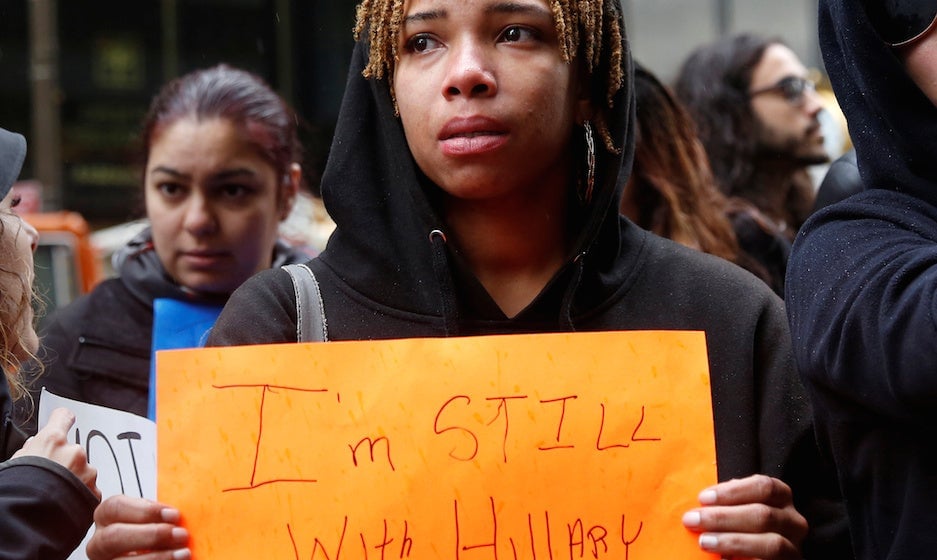Yesterday we mourned Trump’s victory. Today, we start fighting for the country we deserve
A few days ago I was in Jacksonville, Florida with a woman driving a shuttle to drop me off at the airport. She was white, 69 years old, had a community college degree, and had been driving shuttles to and from the airport for more than two decades. She was also, I would come to learn, a registered Democrat.


A few days ago I was in Jacksonville, Florida with a woman driving a shuttle to drop me off at the airport. She was white, 69 years old, had a community college degree, and had been driving shuttles to and from the airport for more than two decades. She was also, I would come to learn, a registered Democrat.
I began asking her what she thought about the election and how it felt to be a voter in such a pivotal swing state, at such a pivotal time for our country. She largely spoke of how disillusioned she was with the entire process, how she didn’t like Hillary Clinton, and how she liked Donald Trump because we needed someone to “go in and shake things up.”
She said that she voted for Trump for this reason. Her tone wasn’t angry; it was measured and matter-of-fact. Because I only had a limited amount of time with her, and admittedly don’t often get the opportunity to directly engage those voting for Trump, I attempted to move past what felt like a euphemism. Was there something she wasn’t willing to say in front of me? Did “shaking things up” mean something very different for my life than it did for hers?
I followed up by asking if she agreed with the things Trump had said about Muslims, Mexicans, undocumented immigrants, black people, the disabled, and countless other groups. She responded by saying, “I don’t agree with it, but he just doesn’t think before he speaks. That’s all.”
It was a striking moment, because it illuminated how an existential threat to the safety of millions of people can be of secondary concern to others. That this woman—a registered Democrat in arguably the most important swing state in the country—would cast her vote for a self-aggrandizing bigot who predicated his entire campaign on racism, xenophobia, and sexism conveyed the remarkable gap in empathy that exists for those on the margins of this country.
As I watched the election results begin to come in, and it became clear how close Florida would be, I could not stop thinking about this woman. I thought about how she smiled at me, despite casting a vote for someone whose past business wouldn’t rent homes to people who looked like me. I thought about how she complimented my sweater, while supporting a candidate who said he’d like to deport some of the students that I teach. I thought about how she seemed like so many white women I had known throughout my entire life. I thought about how my life and the lives of so many others seemed to be of no concern to her once she entered the voting booth. And I could not stop thinking about how many more of her were out there.
We can never go back to who we pretended to be before this moment. Maybe we were never that country. But that doesn’t mean that we won’t work to build the sort of country we deserve. I don’t know what the next four years will look like, but I know that for my students, for my family, for my Muslim friends, for my undocumented friends, for my LGBTQ friends, and for so many more, we’ll keep working, because that’s what we’ve been taught to do. There is dignity in the struggle. There is dignity in the work—even we don’t see it, and even if it’s not for us.
More than half of white women and over 60% of white men in this country voted for Donald Trump. Some voted for him as an explicit endorsement of racism, and some voted for him because they are largely indifferent to the pain suffered by people unlike themselves. I’m just not sure which is worse: to set a house on fire, or hand an arsonist a match.